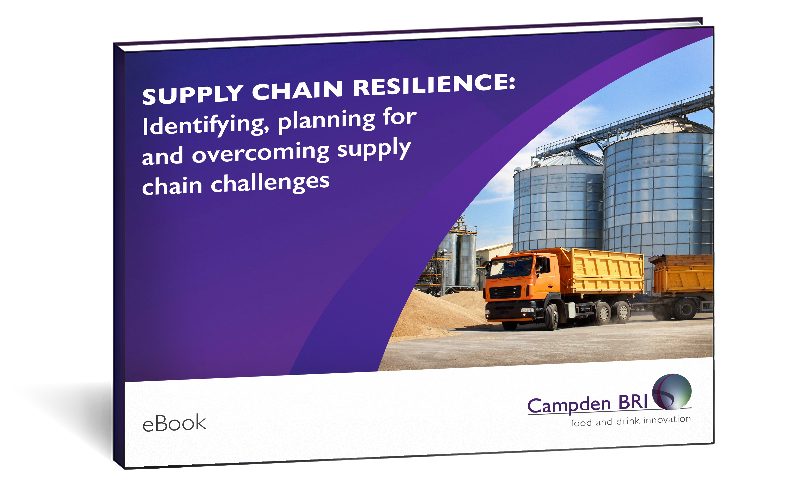
Preparing for 2024 – expected trends and challenges
4 December 2023
Confidence has been emerging throughout 2023, despite persistent challenges from many angles. As we enter 2024, this is expected to continue.
Despite inflation of material / operating costs, changes to which countries have the most supply chain influence, and the pressures to improve sustainability and meet evolving consumer demands, businesses are generally optimistic in their expectations to increase their growth, revenue and profits. To achieve all this, businesses will need to be agile and resilient so that they can adapt and thrive.
Based on the insights shared in recent food industry webinars and reports – Food Manufacturer’s ‘State of the food and drink industry and its future outlook’ webinar, thefoodpeople (TFP) ‘10th Annual Food & Beverage Trend Summit’, and Aptean Food and Beverage 2024 Trends and Outlook Report for the UK and Ireland – this blog covers the anticipated 2024 consumer demand trends, as well as the expectations for how food business operators will navigate these alongside key industry challenges.
What are the consumer demand trends?
The Food Manufacturer webinar and TFP summit were reassuringly aligned in terms of the expectations for consumer trends in 2024, with many similar and overlapping trends highlighted.
Consumers are expected to be frugal with what they will spend on indulgence, and will therefore be seeking out simple pleasures done well, and – when eating out – gourmet versions of simple dishes. When in the supermarket, this is already manifesting in choices moving towards ambient options.
The ambient category is expected to continue its resurgence, with ‘gourmet’ versions of tinned and jarred classics, and alongside new creations alike. Expect to see exciting new ingredients and meal solutions in this space, including in dried and powdered products.
Perhaps the nostalgic draw of ‘retro’ options comes from similar consumer motivations, as this also expected to be a key 2024 trend. With 80s, 70s, 60s and even 50s dishes making a comeback, expect to see more prawn cocktail, meat loaf, roulade and Mississippi mud pie on the shelves, alongside perry, mead and sour beers.
Despite the simple and retro trends, there are also some interesting flavour trends predicted, with the main one being the desire for bold, savoury umami flavours – and not just in savoury dishes / products!
Core flavours (such as chocolate and vanilla within bakery, and strawberry, vanilla and milk chocolate within dairy) will remain popular, alongside the emergence of classy (such as ‘cocktail’) and innovative flavours, and the desire to try new tropical fruit flavours. Similar to the desire for umami in both sweet and savoury, a category ‘twist’ also seems to be a popular way to go – with popular flavours from one category appearing within another, seemingly unrelated category where said flavour would not normally be found. In a similar way, ‘experience’ and mystery flavours are also expected to be popular.
The interest in plant-based foods is expected to level off and even decline, but consumers will still be interested in the ‘green’ connotations that many seem to associate with plant-based. Consumers are looking for sustainably-sourced options, as well as branding that relates to their personal values (whether that be prioritising sustainability, or their other ethical and cultural values).
The decline in plant-based meat alternatives does not mean that meat itself is expected to be on the rise. Instead consumers may be open to new / alternative sources of protein, which we cover in the next section (‘How will food business operators respond?’).

On the whole, we are expected to become more health-conscious, looking for low sugar products, high protein products, and even personalised nutrition. This seems to come hand-in hand with growing consumer awareness and concern (justified or not) about the potential harms of over-consuming ultra-processed foods, which are expected to continue to come under scrutiny.
Finally, how can we look to the future (even if only as far as 2024) without talking about artificial intelligence (AI). Personalised, virtual consumer experiences are expected to become evermore popular and important, and some big brands are already investing in this element of their consumers’ experience.
How will food business operators respond?
The Food Manufacture webinar included a talk from Aptean about the findings of their survey of industry experts from food and beverage businesses in the UK and Ireland.
Supply chain resilience, especially the resilience principles of adaptation and agility, were key themes. As the changing global context continues to transform the way we produce, distribute and consume food, the industry will need to use effective and agile food safety management to keep up. For more on resilience and how to build it, check out our Supply chain resilience eBook.
Download our FREE Supply Chain Resilience eBook today! Thrive in a changing environment by being prepared, agile and resilient.

Automation will be as important as ever to help businesses become more efficient and especially to overcome labour shortages and skills gaps.
AI will start to be more widely relied upon, in conjunction with human intelligence of course, to aid in the visibility, accuracy and timely availability of data. It can also be applied to reduce cost and waste, improve efficiency, aid and expedite scientific discoveries, support creativity and product development, and evolve agricultural practices.
Sustainability programmes are a must, but usually also come with synergies between sustainability targets and efficiency / profitability goals. Regenerative practices such as regenerative agriculture (supported by AI, for example), sustainable aquaculture and vertical farming as expected to grow, in line with the consumer demand trend for sustainably sourced products.

In line with the consumer demand for sustainably sourced options and the expected opening up of attitudes towards alternative protein sources, the TFP summit tipped alternative protein as an area for growth, with the industry looking towards cultivated protein, precision fermentation and biomass fermentation for solutions. Molecular farming, which is growing protein in plants, was also mentioned as an emerging trend to look out for in 2024/25.
Gene-editing of plants may not only be of interest in relation to producing protein. Some growers may be looking into this in order to remove undesirable traits, produce crops that can overcome the challenges of climate change, and to improve the flavour, quality, nutrition, availability and/or sustainability of their product, and ultimately the resilience of their business.
How we can help in 2024 and beyond
Drawing on our deep industry knowledge, science-led expertise and technical innovation capabilities, we advance the future of the food and drink sector by solving real-world challenges alongside our members and clients.
We stay on top of the latest developments by working with the end-to-end food and drink supply chain, as well as cooperating with a wide network of external partners. We can use this, as well as our world-class laboratories and processing facilities, to help food and drink businesses to navigate challenges and maximise opportunities throughout 2024 and beyond.
We connect you directly with our leading experts to help produce better, safer products and grow stronger businesses.
How can we help you?
If you’d like to find out more about any of the topics raised here, including how we can support you and your business, contact our support team to find out how we can help.
Download our FREE ‘Supply Chain Resilience’ eBook today!
Be resilient and thrive – ensure continuity of supply of safe, quality food.







